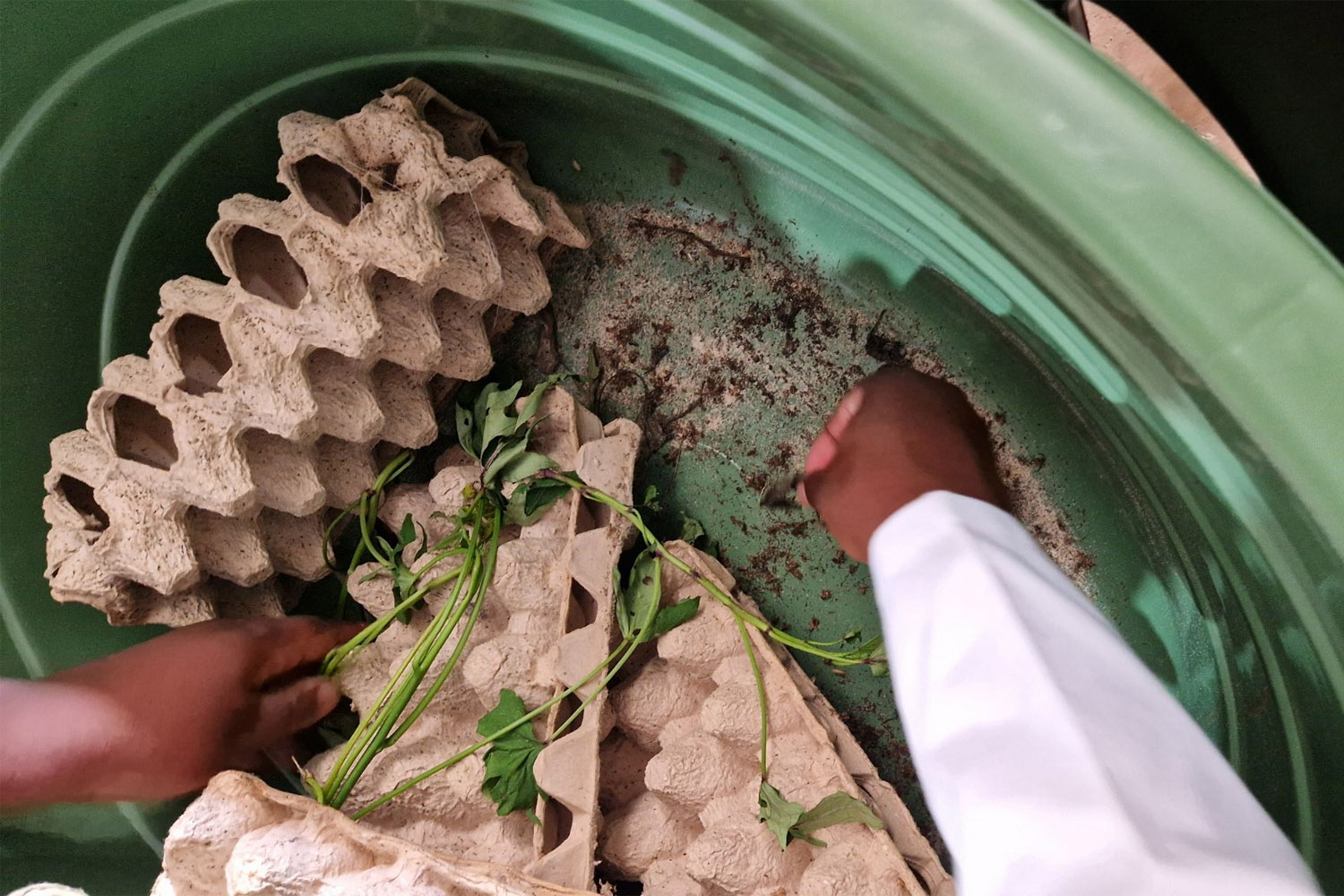Pause carousel
Play carousel

Food innovation scientists from Abertay University in Dundee and Chinhoyi University of Technology in Zimbabwe have discovered a way to change a cricket farming process that significantly increases both total harvest yield and nutritional value.
As global efforts to tackle climate change continue, nations around the world are investigating new ways to create more sustainable food chains for the human population.
Previous research has already shown that crickets have more than double the protein value of animal-based sources and the research team from Abertay and Chinhoyi have been investigating how proteins and fats derived from insects can be harnessed to create protein powders and other compounds, which can in turn be used in food products.
Funded through the UKRI Global Challenges Research Fund, the latest project saw researchers work with Zimbabwe-based company Jumping Protein to set up experimental units at their farm near Harare.
The research focused on a small-scale cricket farming process, analysing the effects that changing the diet of the insects had on their successful growth rate and protein content.
The crickets were switched from their existing diet of chicken feed to sweet potato leaves, amaranth leaves, soya beans and sunflower seeds.

It was discovered that the higher protein content of soya beans and sunflower feeds enabled the crickets to grow faster and, crucially, that the nutritional composition of the insects was altered by the diet – a development that potentially allows farming companies to rear crickets in line with the nutritional needs of a population.
The cricket farming process is significantly more eco-friendly than rearing livestock and uses a fraction of the resources, with the cricket flour produced by Jumping Protein containing many nutrients including the nine essential amino acids, calcium, zinc, iron, protein, potassium and fatty acids.
As well as working in Zimbabwe, Abertay’s research team analysed the nutritional value of the crickets, using gas chromatography and mass spectrometry to record results.
Professor Alberto Fiore of Abertay’s Division of Engineering and Food Sciences led on the project alongside the University’s Dr Moira Leadbitter, Dr Faith Angeline Manditsera from the Chinhoyi University of Technology in Zimbabwe and Eng Esnath Divasoni of Jumping Protein, Zimbabwe.
Prof Fiore said:
This project proved that we can create a change in nutritional profile in these insects and that insect farming can be a viable commercial pathway. By managing the crickets’ food sources, they can become a valuable source of base protein for products such as pasta, bread, cookies, snacks and smoothies. Abertay University is passionate about tackling climate change and this new model is something that we hope to explore further with other partners keen to develop products from this highly sustainable source.
Dr Faith Angeline Manditsera from the Chinhoyi University of Technology said: “We were delighted to partner on this project which supports our mission of educating and developing people for roles in the food industry and conducting research with impact for our communities.”
Esnath Divasoni of Jumping Protein said: “Crickets are a global food source of the future and a climate positive way of producing protein that is far more effective than livestock farming. Working with Abertay and Chinhoyi has helped us progress towards our vision of moving towards a more effective production stream and creating a network of insect farmers that can create income for rural communities.”